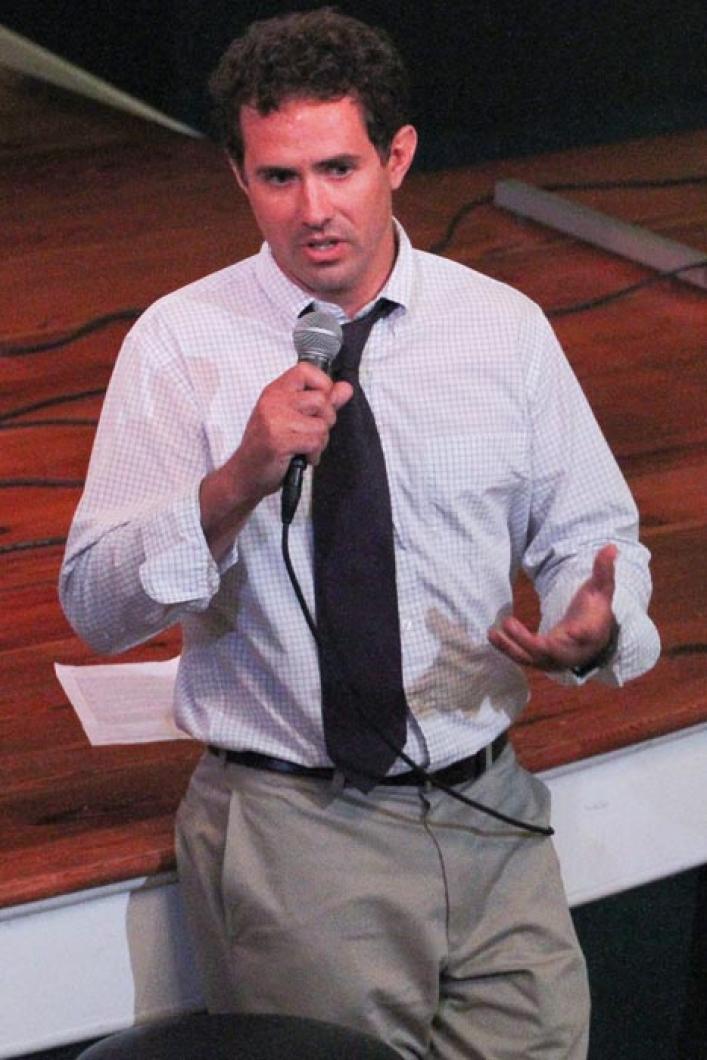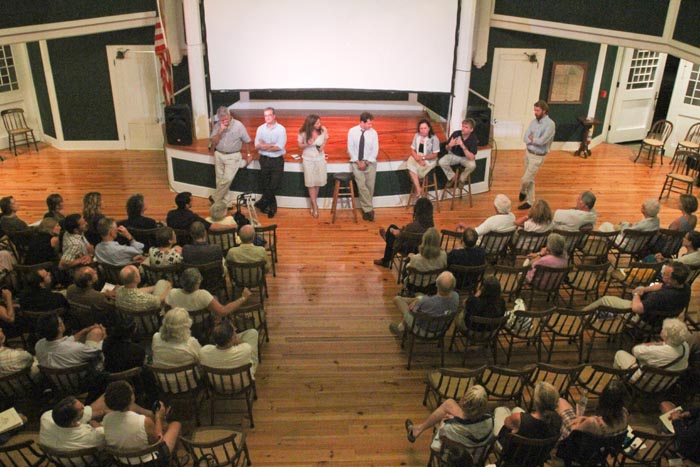Let’s face it, there are few pursuits more quixotic than that of journalistic objectivity. The preview screening of the documentary movie Cape Spin: An American Power Struggle in Oak Bluffs on Tuesday night provided a perfect illustration of the point.
For 84 minutes, the film explored the issues involved in the controversial Cape Wind development. Then for another hour or so its makers were subjected by audience members to a torrent of claims and counterclaims about their objectivity.
And that highlights the central problem in assessing objectivity. The people who make the strongest pronouncements, the harshest judgments, are invariably themselves highly subjective.
Still, there are those who hew to the belief that objectivity can be objectively assessed, and they always begin with the apparently concrete measure of factuality. This might be described as the Dragnet measure. “Just the facts, ma’am,” as they used to say in that old show.
But the problem with that measure is, of course, that certain facts may be included in a work of journalism, and they can also be omitted.
In the case of Cape Spin, the included facts were mostly accurate. The movie set out the detailed history of Cape Wind, presented the details on the number and location of the turbines, the points of controversy relating to wildlife, fisheries, Indian spiritual belief, the cost of the power to be produced, et cetera.
There was at least one minor error: The film had the number of legal actions currently in train against the development wrong. But while that was noted by the audience, that was not the focus of the criticism.
The critics from the anti-Cape Wind side complained about factual material that was included — a short segment which looked at the environmental and social costs of alternative methods of power generation, specifically mountain top removal in Appalachia by coal companies.
To the filmmakers, this was relevant because people protesting this destructive practice had been involved in actions in support of Cape Wind. But to those on the anti-wind power side, it was propaganda.
Several of the anti-Cape Wind audience members also thought there were issues that were insufficiently explored, including the potential health effects of turbines.
On the other side, those who supported Cape Wind felt there should have been more emphasis on the need for alternative energy. They complained that the film did not delve deeply enough into the broader issue of climate change due to the use of fossil fuels.
Another yardstick of objectivity is balance. Were all sides of the issue given an equal chance to present their views? Particularly at election time, people focus closely on this measure. Many countries actually require the media to give both sides an equal go.
But this also is a crude measure because it is hard to control for quality. Was the representative of one side more personable/articulate/quotable than the other? Was that representative subjected to tougher questions? Did he or she appear in more favorable circumstances?
Here again, Cape Spin seemed to pass. Without counting the number of talking heads or putting a stopwatch on the minutes of screen time, there appeared to be an even number of speakers for and against Cape Wind. The two main characters in the documentary film are the head of the Alliance to Protect Nantucket Sound, Audra Parker, and the head of Clean Power Now, Barbara Hill.
The star of the movie, though, was Robert Whitcombe of the Providence Journal. His critiques of the opponents of the project were pithy and articulate. He probably tipped the balance in favor of Cape Wind, not because he received a lot of screen time, but because he was so brilliantly concise. And it is also true that some of the anti-Cape Wind people were presented almost as caricatures of elite privilege.
The next measure of objectivity is tone. Were the concerns of one side or the other undermined by the way they were presented?
Cape Wind supporters thought their side had been portrayed in an unflattering manner. One audience member claimed even the choice of music in the movie evidenced bias. Audra Parker said she thought the movie made a “mockery” of the seriousness of the issue.
She did not get a lot of support in that view. But there was one aspect of the movie that people from both sides agreed on — that a section in which a radio debate between Ms. Parker and Ms. Hill was intercut with old footage of a comic boxing match, was tacky and a cheap shot.
So is Cape Spin an objective work of reportage?
The assessment of the one independent working journalist on the discussion panel — WCAI reporter Sean Corcoran, who has long covered the story — was that it was. A slight majority of the members of the audience who spoke thought the movie favored Cape Wind. But that may have been because more opponents attended the screening.
In the end the movie was engaging, and whether it came down slightly on one side or the other is in any case less important than the fact that it did a good job of documenting the arguments of the parties involved.
People will believe what they want to believe, a reality illustrated when a show of hands was called at the end of the movie. Who had changed their opinion because of it?
One hand went up.











Comments
Comment policy »